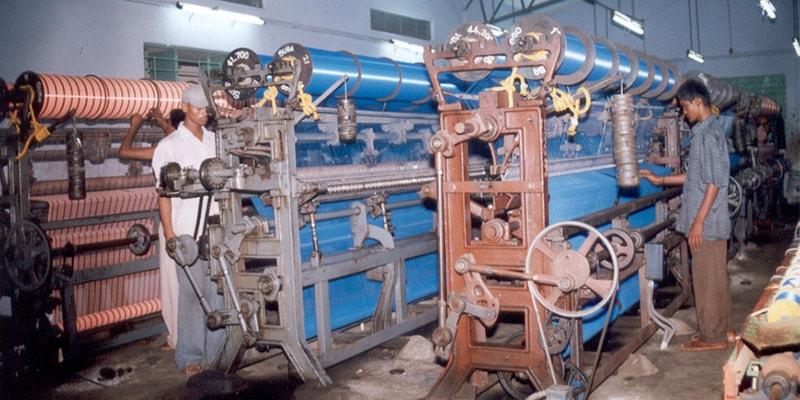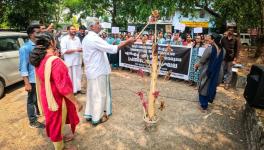Private Textile Industry in Kerala Staring at Shutdown

Representational Image. Image Courtesy: tn.nic.in
New Delhi: Two out of the existing four private textile companies in Kerala are on the verge of shutdown. The reason? Increase in production cost as well as the high price of cotton in the domestic market. Also, the cost for importing cotton is huge. As a result, two major textile companies in the Kanjikode industrial area are now facing a serious economic crisis.
According to the report by the regional daily Deshabhimani: “There were a total of 35 private textile mills in the state earlier, and now only four mills are existing. Of these, three are in Palakkad district.”
When asked, Raju S B, state committee member of Centre of Indian Trade Unions (CITU) told Newsclick: “The major private textile production company in Palakkad district are Precot Meridian and Patspin India Limited (both are in Kanjikode), now both are facing a serious crisis. Precot Meridian started in 1964 and produced goods depending on the needs in foreign and internal markets. Patspin India Limited mainly depended on income generation through 100% exports, but now they were exporting goods at only 15% of their total production.”
Also read; https://www.newsclick.in/india/free-trade-agreements-dangerous-new-frontier
The situation of workers in these private textile mills is also pathetic. Raju S B said, “The Patspin India management is pressuring about 200 workers to take voluntary retirement. And companies like these are appointing contract labourers to overcome the crisis,” adding that there is no visible solution in the near future and one cannot rule the fact that these companies may move base to ASEAN nations like Bangladesh.
When the ASEAN-India Free Trade Area under the Framework Agreement (AIFTA) came into effect on January 1, 2010 after the approval of the final draft in 2009, it mostly affected such industries and the farming sector.
According to reports, the textile industry one of the largest sectors in terms of employment. In the agreement the then central government agreed to import 48 products without duty, including readymade garments, fibres and yarns used for textile production. After the agreement came into effect, 230 mills shut down in Tamil Nadu, which was once the hub of textile production.
Bangladesh is now the main centre for garment exports followed by Vietnam. When competition increased during the period after the agreement, the big private firms in India established textile mills in Bangladesh where the production cost (which includes cost of raw materials, labour cost and overhead cost) is very low compared with India. And from there they exported materials to India.
In addition, the implementation of goods and services tax (GST) has also badly affected the textile industry across India. During the first term of the Narendra Modi government, P K Sreemathy, the CPI(M) MP from Kannur, had appealed to the Textile Minister seeking exemption from GST, as apart from the industry it was impacting the livelihood of thousands of people working in the handloom sector.
Also read; https://www.newsclick.in/india/indias-external-balance-deficit-impending-macro-economic-crisis-0
Get the latest reports & analysis with people's perspective on Protests, movements & deep analytical videos, discussions of the current affairs in your Telegram app. Subscribe to NewsClick's Telegram channel & get Real-Time updates on stories, as they get published on our website.
























